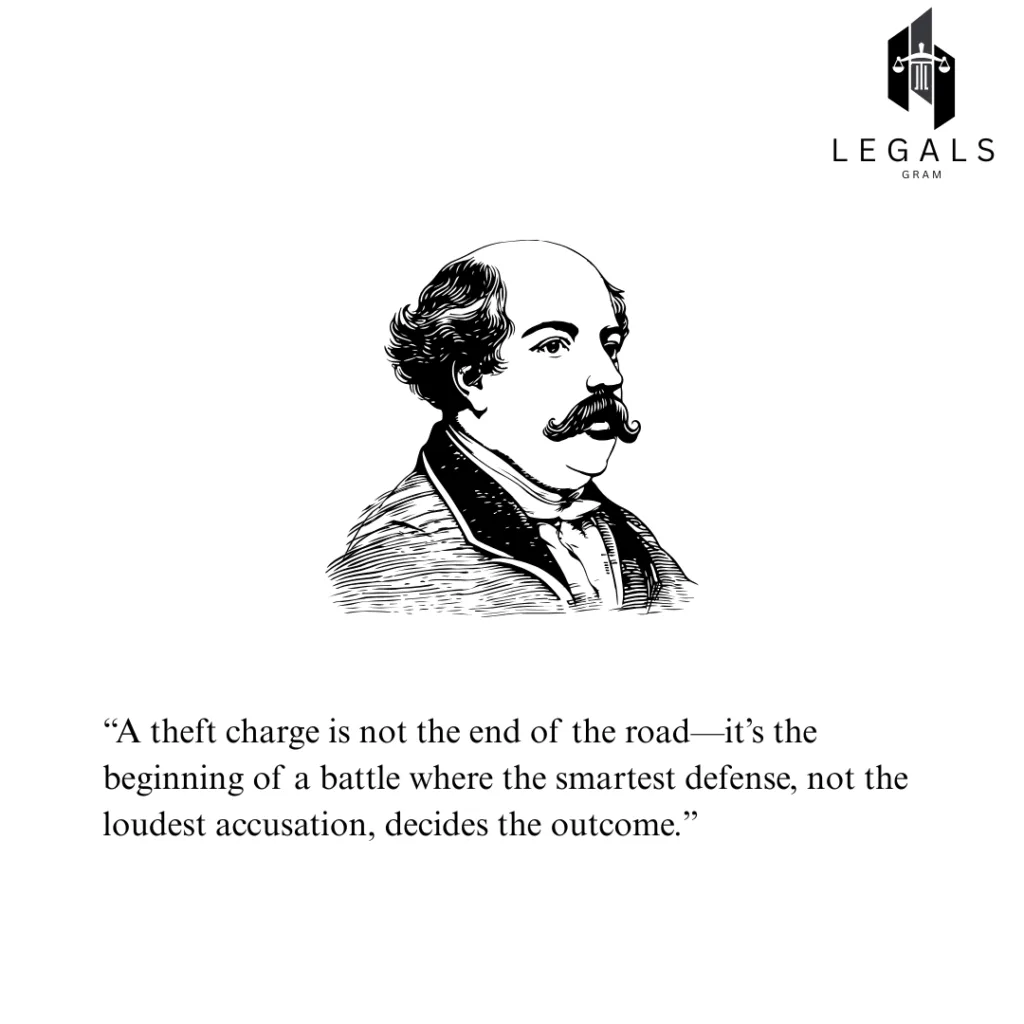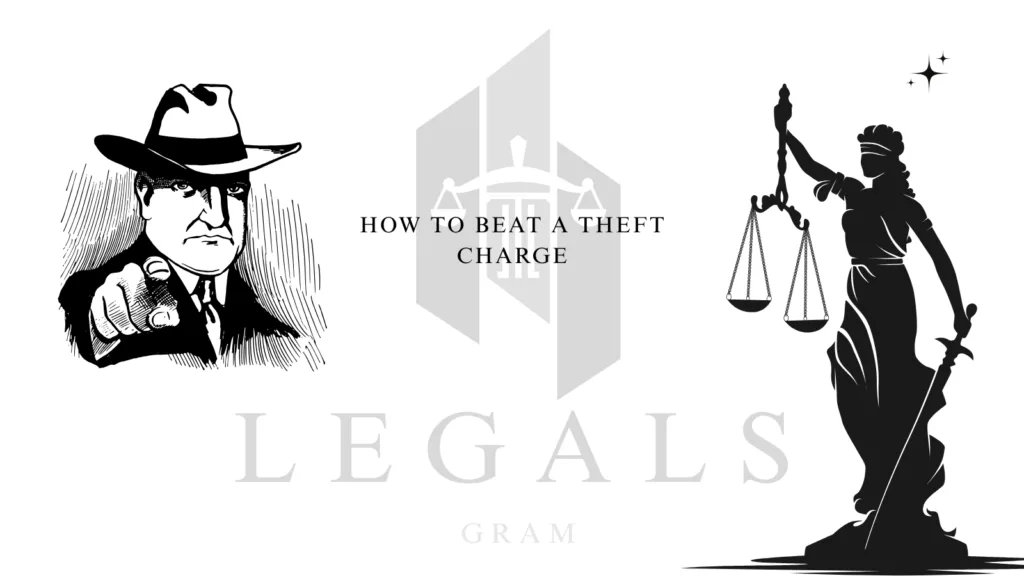When a theft charge hits you, it seems that the ground has moved out beneath you. One moment you are moving on with your day, the next moment you are looking at legal documents that might change it all. I understand you are likely racing with thoughts and worst-case scenarios.
However, here is the thing: theft cases are not automatic convictions. Witty defence tactics can turn it in your favor. I am going to show you how people fight these charges most effectively.
Understanding What You’re Up Against
There are various flavors of theft. Petty theft, grand theft, shoplifting – they all have their regulations and punishments. The prosecution must prove that to permanently deprive another person of his/her property, you took their possession.
That is even more difficult to prove than it sounds.
The “I Didn’t Mean To” Defense
There are occasions when things just fall into your hands. Perhaps you walked out of a shop with something you did not pay for. Or took the wrong jacket at a restaurant.
This defense works in cases when you have no intention to steal. Video footage that you were not paying attention to or that you were in a hurry can assist. Eyewitnesses who were to see your bewilderment are also important.
I have witnessed instances where individuals actually lost track of things in the lower tier of their cart. The trick is to show that your attitude was not criminal.
Challenging Ownership Claims
Who describes that the property was really in possession of the accuser? This defense undermines the fact that the supposed victim was actually in possession of what was allegedly stolen.
Suppose you are alleged to have stolen a bike. Provided that the individual who alleges that it belongs to him or her cannot demonstrate that it belongs to him/her, such as no receipt, no registration, no apparent evidence of purchase, then you may have a case to contend.
This becomes difficult with joint property or objects that are transferred to different people.

The Permission Defense
The defense of “I thought it was okay to take it” can be a reasonable defense. Perhaps you borrowed some items, and the owner said that it was stolen. Or you had permission that was afterwards refused or forgotten.
Your case can be saved by text messages, emails, or witness testimony with permission. Even verbal consent will count, but it is more difficult to establish.
The challenge here is memory. Individuals lose the discussions or switch the narration at a later stage.
Mistaken Identity Issues
Security cameras are not perfect. Witness accounts become blurred. In some cases, the blame falls on the wrong individual.
In case you were not present on the scene where the theft occurred, alibi evidence is important. The location of your phone, credit card history, or eyewitnesses who can prove that you were elsewhere can destroy the case of the prosecution.
Evidence that is physical is important as well. Assuming that the so-called thief is tall and you are short is a sufficient reason to doubt.
Procedural Defense Strategies
Police are not always perfect in enforcing the rules. Perhaps they have frisked you without a justifiable reason. Or omitted to read your rights on questioning.
Such procedural misconduct can have evidence dismissed. The case of the prosecution can be dismissed altogether without vital evidence.
The lawyer will examine all your arrest and investigation processes. A single error on the part of the police might be your road to freedom.
Value Disputes That Matter
The distinction between grand theft and petty theft is usually based on dollars. In case prosecutors cannot show that the price of the item was more than the felony threshold, you may be charged with less.
All these have a role to play in receipt values, market prices, and condition assessments. A phone that is stolen may be of lesser value than alleged because it may be broken or be old.
Building Your Counter-Narrative
There is a story behind every theft case. The prosecution has its side. You must be more persuasive.
Perhaps you were taking back something you already bought. Or taking possession of that which was fairly yours. Your narrative must be sensible and must be backed up.
The lack of consistency in the timeline in the case or the testimony of the witnesses can also make your story more convincing.
The Reality Check
Not every case is winnable. The evidence is sometimes overwhelming. Nevertheless, even at that time, a strong defense can either minimize charges or penalties. Complete Criminal Law Handbook: Your Guide to Understanding Criminal Justice
Plea bargaining occurs in most situations. The deals are influenced by your defense strategy.
It is the last thing you want to do when you go to battle is to assume you will lose. These are the same strategies that made many individuals fight and win against theft.
Do not forget- in criminal court, doubt is your friend. You do not have to establish innocence beyond a doubt. You only have to cast a reasonable doubt as to guilt. Best Criminal Defense Attorneys for Felony Charges – Free Consultation
That is usually easier than you think.



